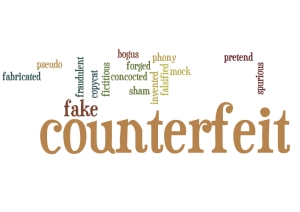Counterfeits becoming 'normalised,' survey suggests
Phil Taylor, 20-Oct-2013
 Consumers in the UK are regularly purchasing fakes even though 90 per cent acknowledge it is wrong to do so, says a survey.
Consumers in the UK are regularly purchasing fakes even though 90 per cent acknowledge it is wrong to do so, says a survey.
The report by PricewaterhouseCoopers (PwC) showed more than half of people surveyed admitted to buying some form of counterfeit item - including alcohol, cigarettes, medicines, films, music, clothes and car parts - suggesting the purchase of knock-offs is increasingly being seen as acceptable behaviour.
"Counterfeits have an obvious impact on profit and jobs, yet people increasingly see access to fakes as a normal, consumer choice," said Mark James, a member of the PwC anti-counterfeiting team.
"Clients tell us they are increasingly wary of 'normalisation' whereby purchasing fake goods becomes commonplace and accepted in mainstream society," he added.
The survey found that 18 per cent of respondents had bought fake alcohol and 16 per cent had bought fake medicines, despite the clear risks to health of doing so. The top categories bought by consumers were films and music (42 per cent) and clothing and accessories (41 per cent).
Overall, Londoners were most likely to buy fakes - followed by people in Northern Ireland - and the tendency to do so seemed to decrease with age and rising social grades. Interestingly, among the younger age group (18-24 years) the proportion that believed counterfeiting was morally wrong dropped to 80 per cent.
Price and affordability were the top drivers for those who consciously chose to buy counterfeit products, and only a third of people surveyed were worried about getting caught - 84 per cent did not know the penalties for buying fake goods - with the fear of handing over bank details to criminals much greater at 73 per cent. The top concern was safety at 75 per cent.
Consumers believe responsibility for stopping the sale of counterfeit goods lies primarily with the police, followed by government then, intriguingly, themselves, above online markets and manufacturers.
Tackling the trade in counterfeits would best be improved by harsher penalties for counterfeiters and strong enforcement, followed by better education for consumer and - predictably at the bottom - harsher penalties for consumers.
According to James: "The digital economy and global supply chains have made tracking counterfeit goods and measuring their economic damage fiendishly complex."
"Companies invest significant amounts of time, money in effort in developing their products. Manufacturers and buyers of counterfeit goods strike right at the heart of that. Ultimately, companies are seeing their brand, reputation and revenues stolen."

©
SecuringIndustry.com




 Consumers in the UK are regularly purchasing fakes even though 90 per cent acknowledge it is wrong to do so, says a survey.
Consumers in the UK are regularly purchasing fakes even though 90 per cent acknowledge it is wrong to do so, says a survey.